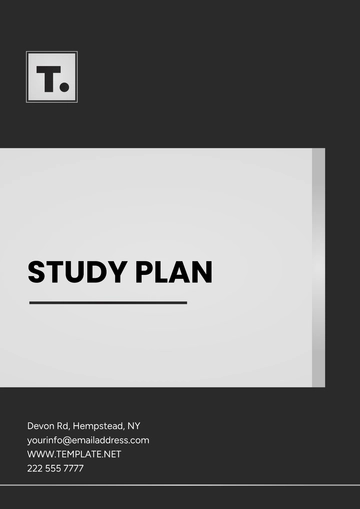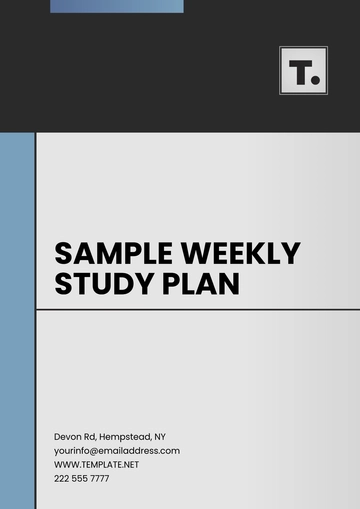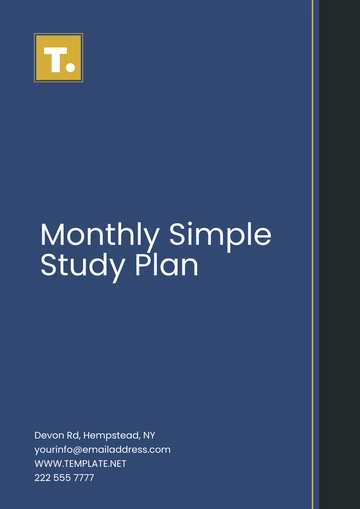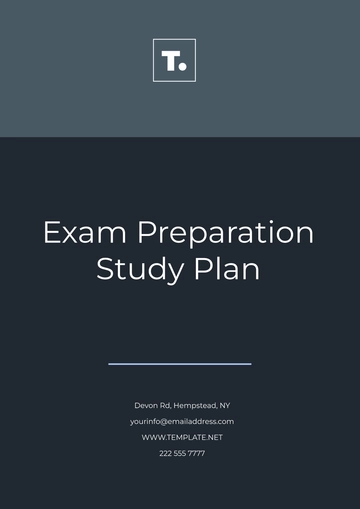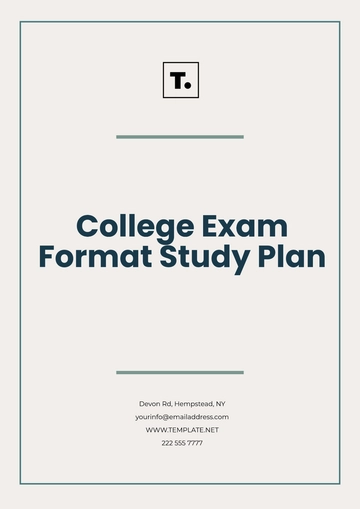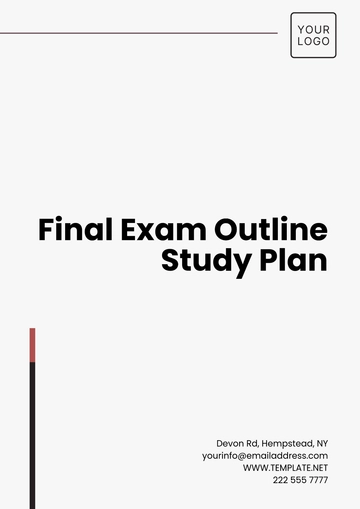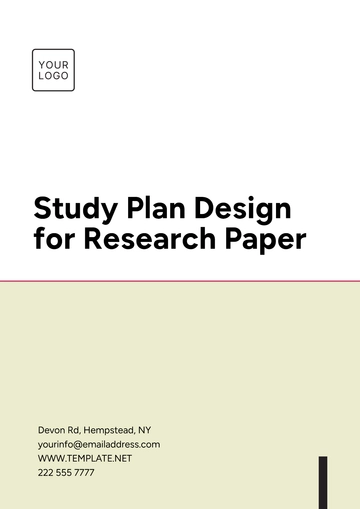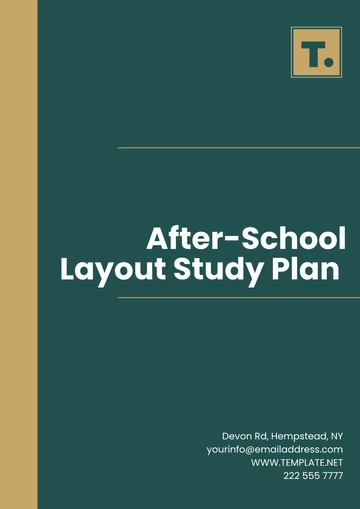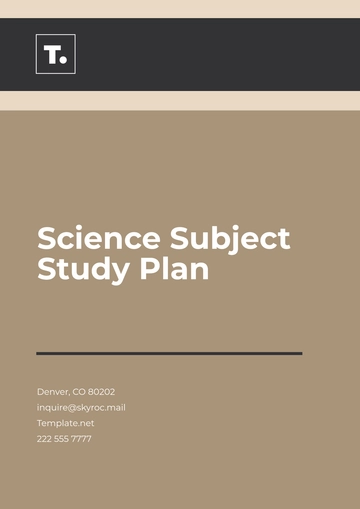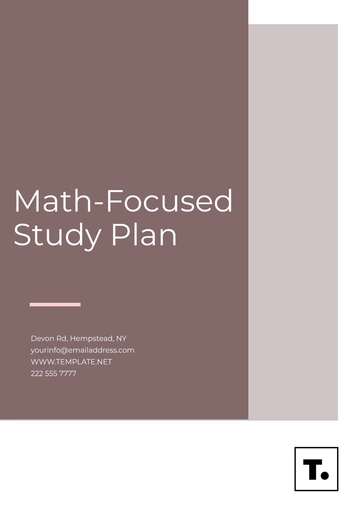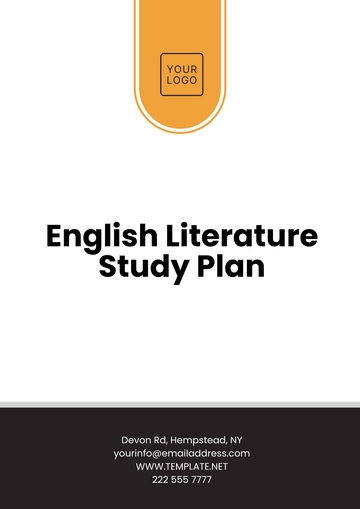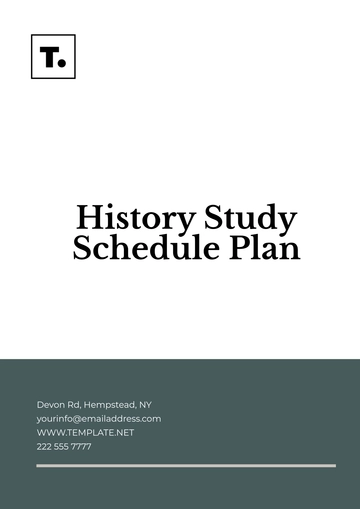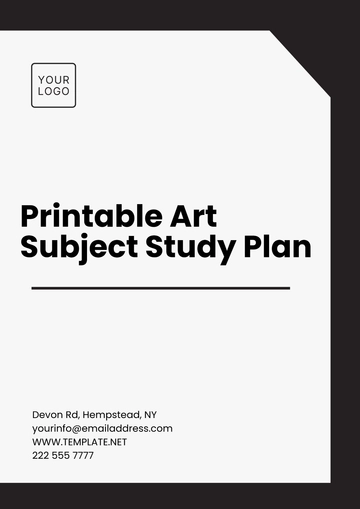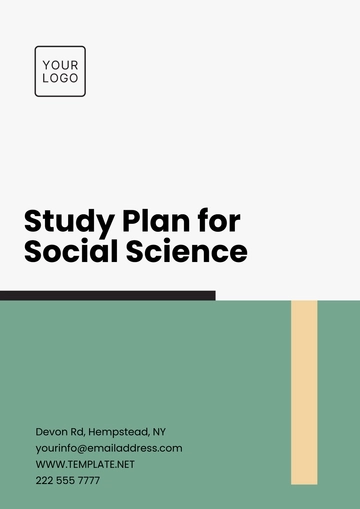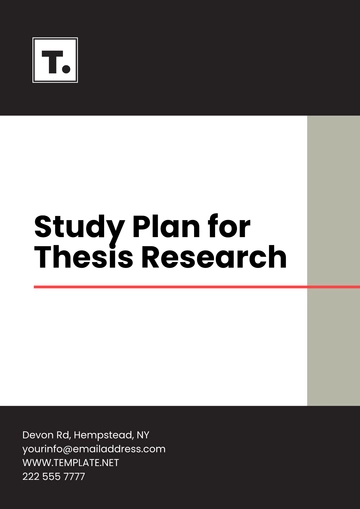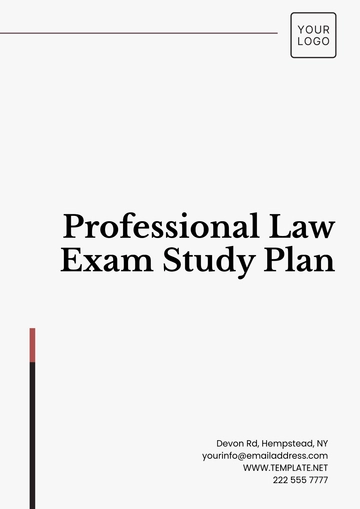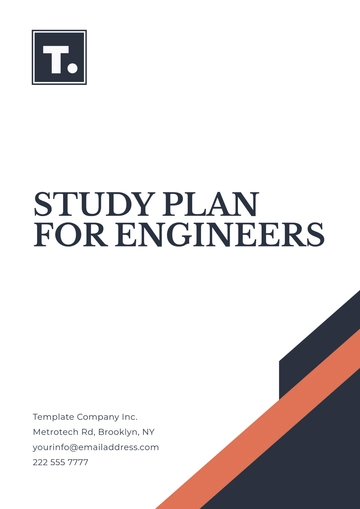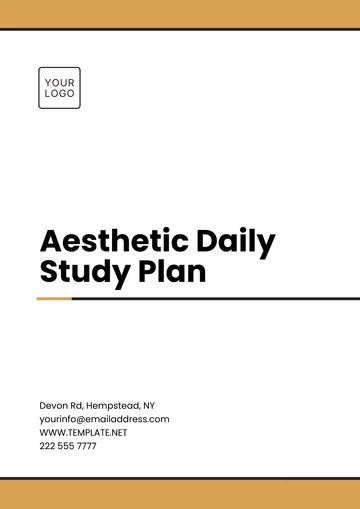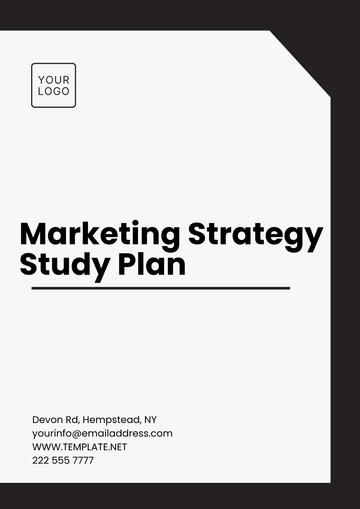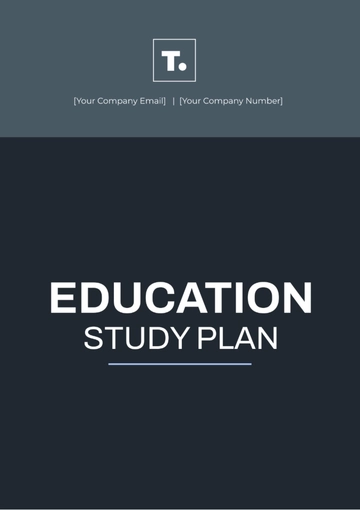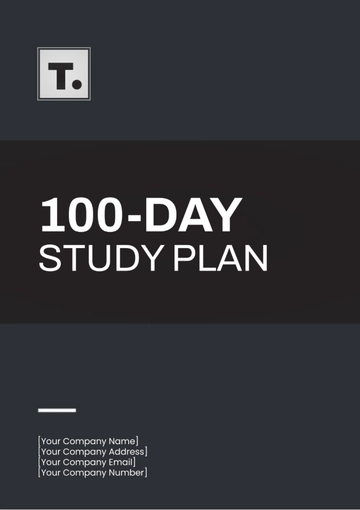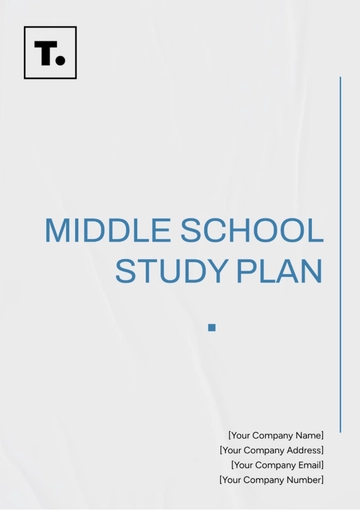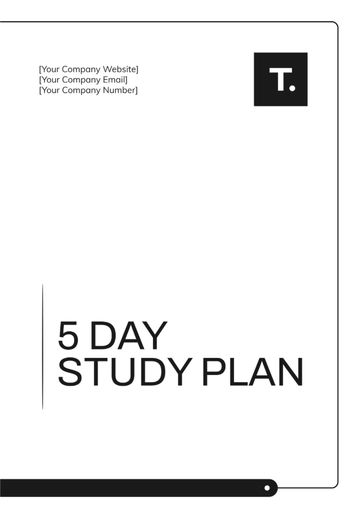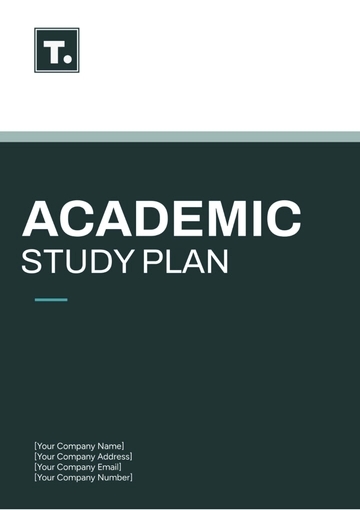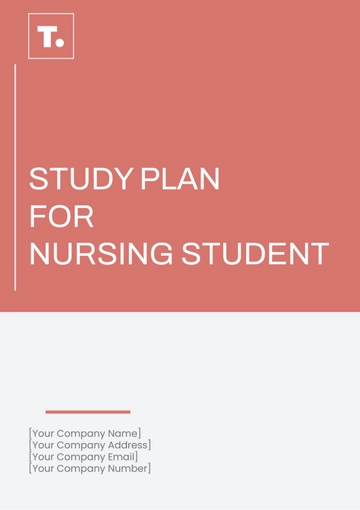Free 8 Week Study Plan
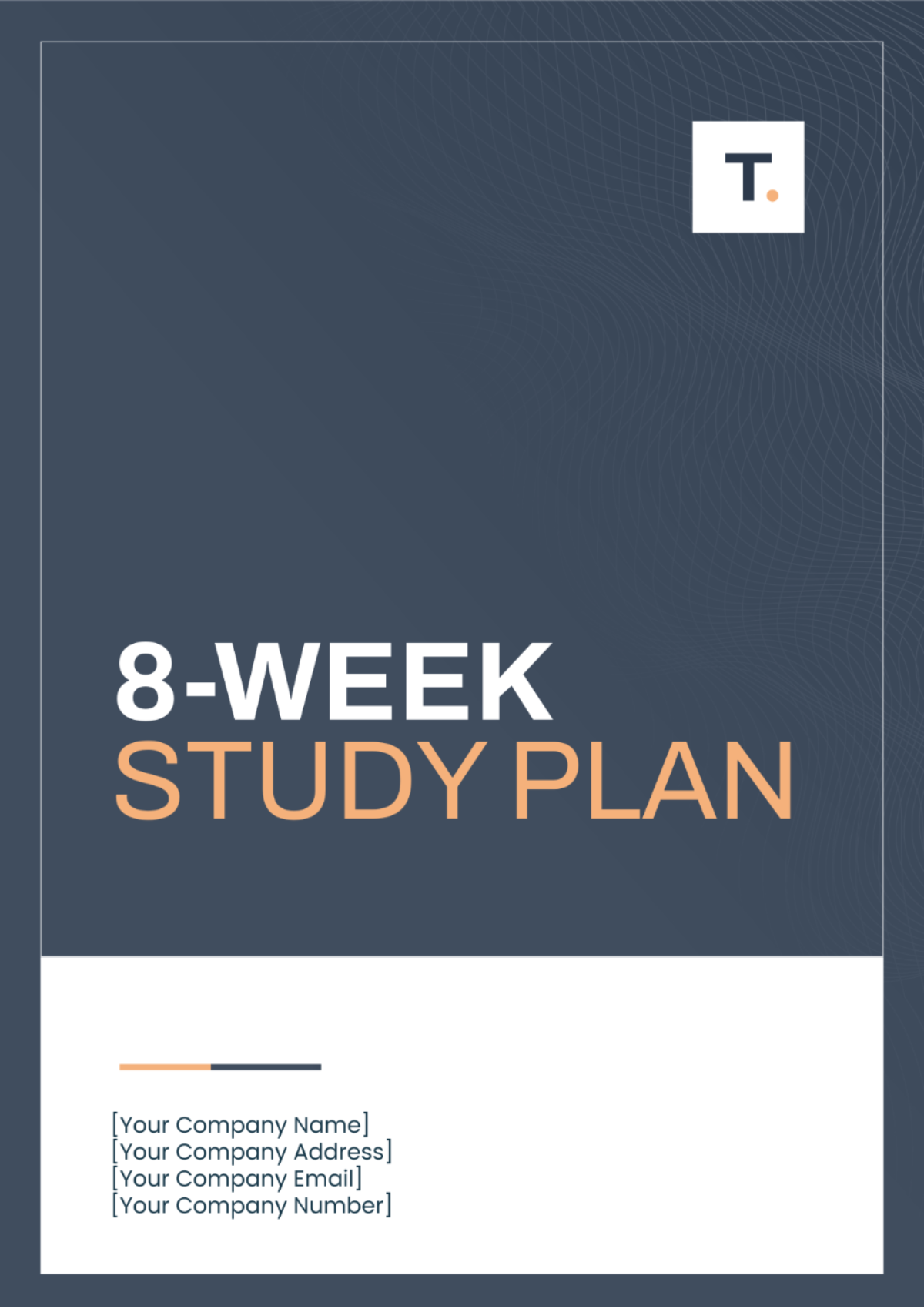
Name: | [Your Name] |
Address: | [Your Company Address] |
Date: | April 1, 2051 |
I. Introduction
Welcome to my 8-week study Plan designed to help me master Python programming at [Your Company Name]. This plan will guide me through a structured learning journey aimed at enhancing my Python skills and proficiency. Whether I'm a beginner looking to build a strong foundation or an intermediate learner aiming to deepen my understanding, this plan is tailored to accommodate my needs and goals.
II. Goals
By the end of the eight weeks, I will:
Develop a strong understanding of Python syntax and fundamentals, enabling me to write clean and efficient code.
Gain proficiency in implementing various data structures and algorithms in Python, essential for solving complex problems efficiently.
Learn to create and deploy Python applications, equipping me with practical skills for real-world development scenarios.
Enhance my problem-solving skills through a series of coding exercises and projects, building my confidence as a Python programmer.
III. Schedule
A. Week 1-2: Python Basics
Day 1-3: I'll dive into Python syntax, understanding variables, data types, and basic operations.
Day 4-6: I'll explore control flow statements including if, else, and loops, mastering their usage in different scenarios.
Day 7-8: I'll learn about functions and modules, and understand how to organize and reuse code effectively.
B. Week 3-4: Data Structures and Algorithms
Day 1-3: I'll delve into essential data structures like lists, tuples, and dictionaries, grasping their implementation and usage.
Day 4-6: I'll explore advanced data structures such as sets and comprehensions, understanding their advantages and applications.
Day 7-8: I'll get an introduction to algorithms and problem-solving strategies, learning fundamental techniques for solving coding challenges.
C. Week 5-6: Advanced Topics
Day 1-3: I'll master object-oriented programming concepts including classes, inheritance, and polymorphism.
Day 4-6: I'll learn about file handling and exception handling, understanding how to manage input/output operations and errors gracefully.
Day 7-8: I'll dive into regular expressions and debugging techniques, honing my skills in pattern matching and error diagnosis.
D. Week 7-8: Projects and Applications
Day 1-4: I'll work on small coding projects to apply learned concepts, integrating various aspects of Python programming into practical solutions.
Day 5-6: I'll explore web development with Flask or Django, building web applications and APIs using Python frameworks.
Day 7-8: I'll finalize projects, review my code, and prepare for the next steps in my Python journey, whether it's advancing to more complex topics or diving deeper into specific areas of interest.
IV. Resources
A. Books
Python Crash Course by Eric Matthes
Automate the Boring Stuff with Python by Al Sweigart
B. Online Tutorials and Documentation
I'll utilize the official Python documentation available at Python.org.
C. Coding Platforms for Practice
I'll engage with platforms like LeetCode, HackerRank, and Codecademy to practice and reinforce my learning.
V. Milestones
Week 4: I have set a goal for myself to achieve a thorough understanding and completion of the fundamental syntax and control flow in Python. By doing so, I will demonstrate my proficiency and capability in writing and executing simple Python programs effectively.
Week 6: My goal is to master data structures and basic algorithms, solving intermediate-level coding challenges with confidence.
Week 8: I aspire to successfully develop and deploy a Python application, showcasing my skills in real-world development scenarios.
VI. Reflection
I'll take time at the end of each week to reflect on my progress, challenges faced, and areas for improvement. I'll document my reflections in a journal or through online platforms to track my growth over time. I'll use this feedback to adjust my study plan accordingly, focusing on areas where I need more practice or exploration. I understand that learning is a journey, and each step I take brings me closer to mastery in Python programming.
- 100% Customizable, free editor
- Access 1 Million+ Templates, photo’s & graphics
- Download or share as a template
- Click and replace photos, graphics, text, backgrounds
- Resize, crop, AI write & more
- Access advanced editor
Discover and Stay organized and achieve your goals with Template.net's 8-Week Study Plan Template. This fully customizable and editable template, accessible in our AI Editor Tool, helps you plan and track your study schedule effortlessly. Maximize productivity and stay on top of your studies with ease. Elevate your study game today.
